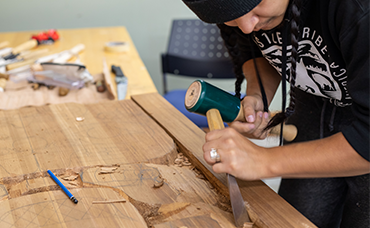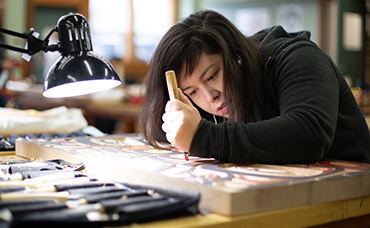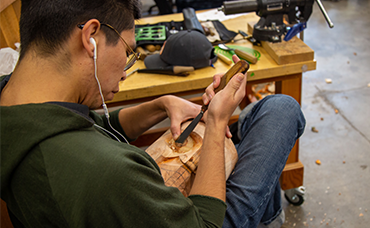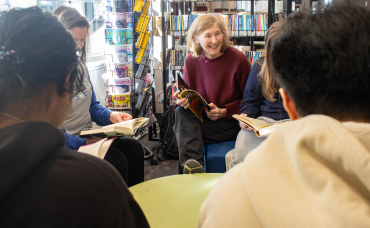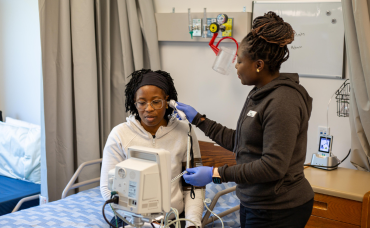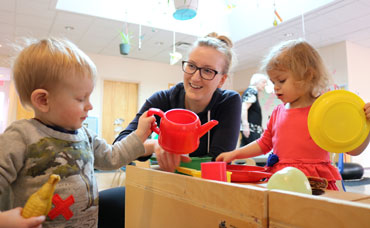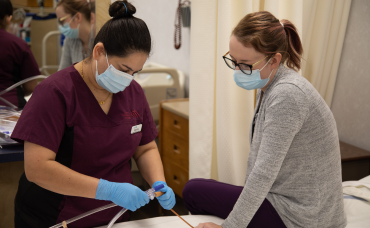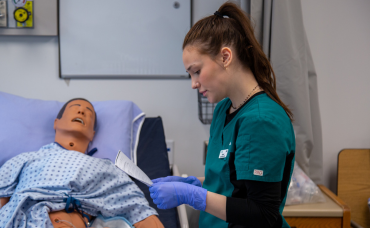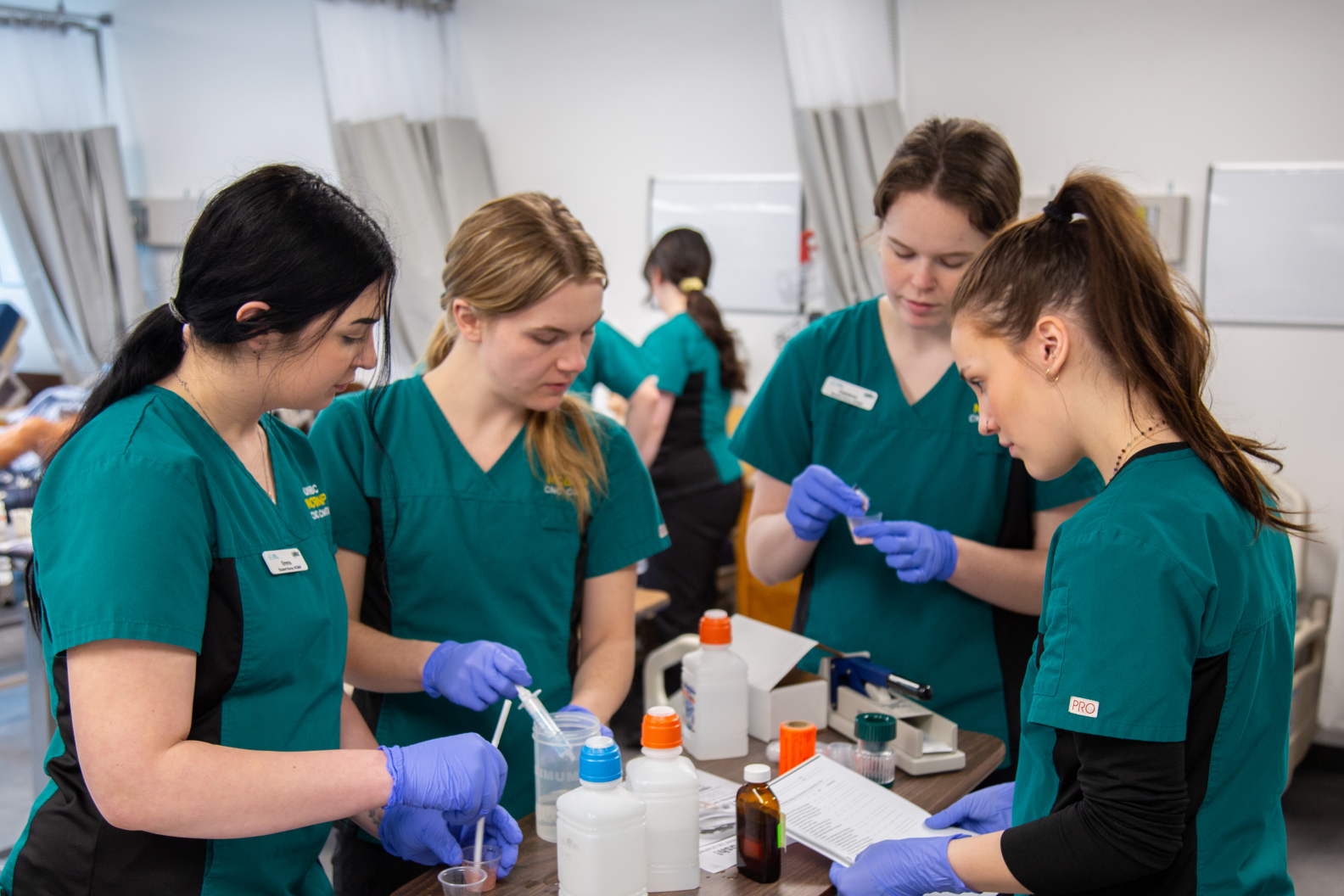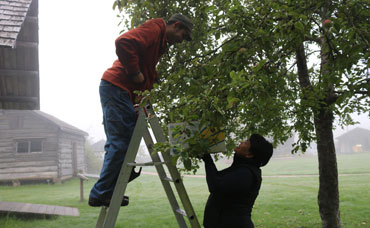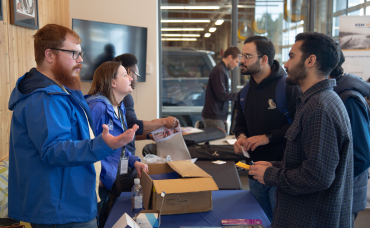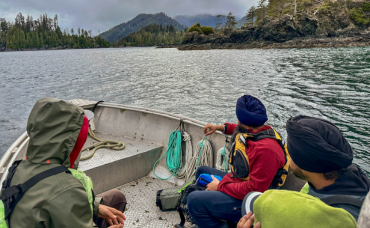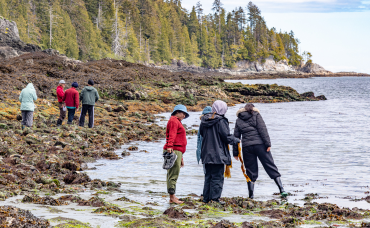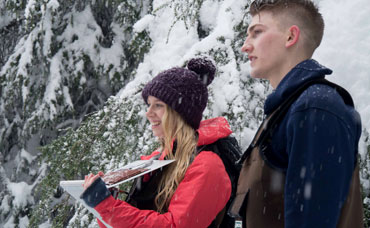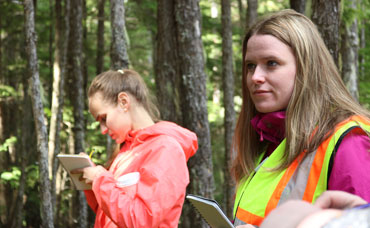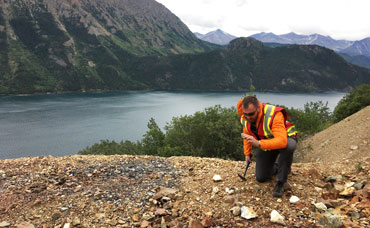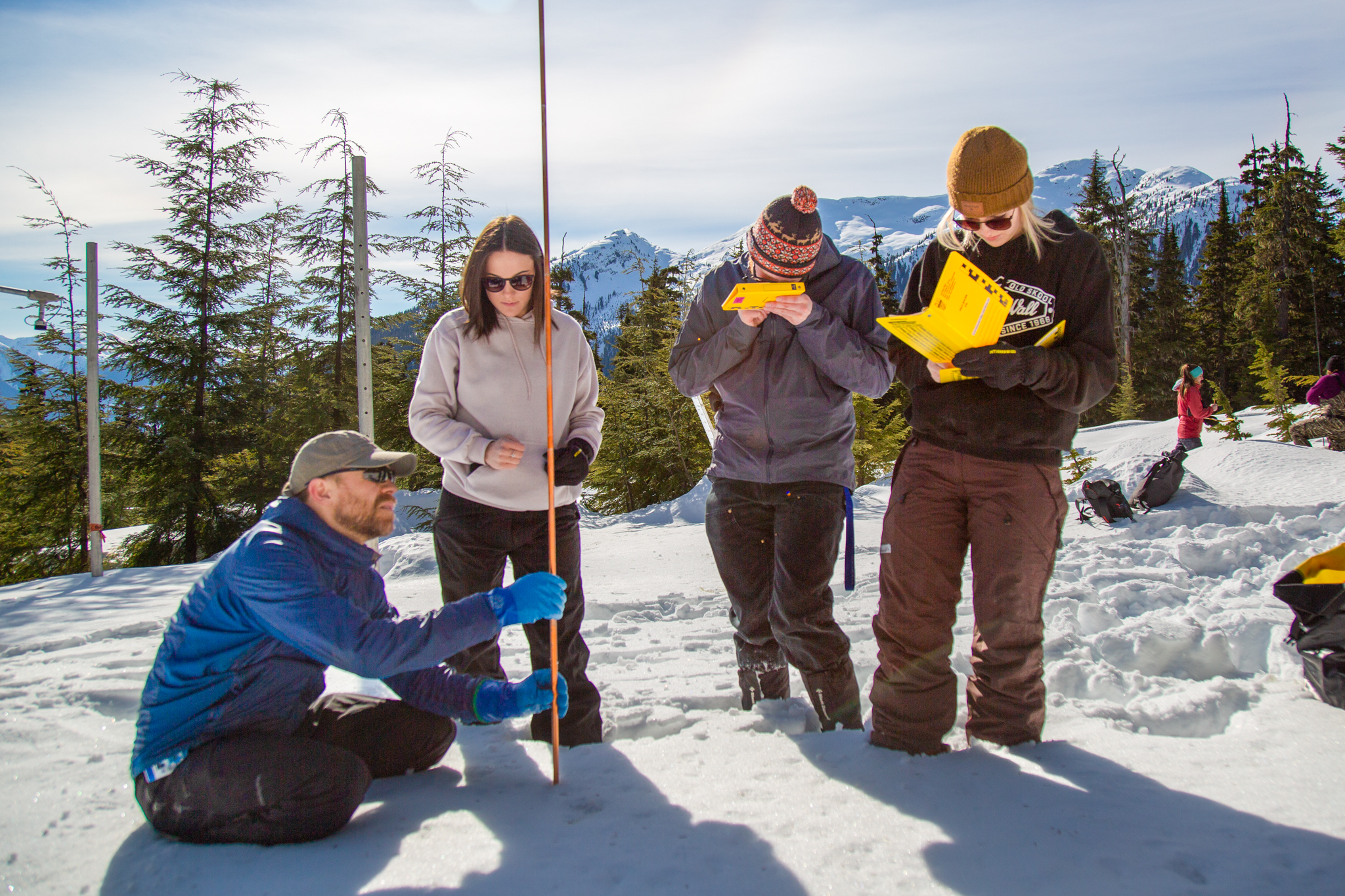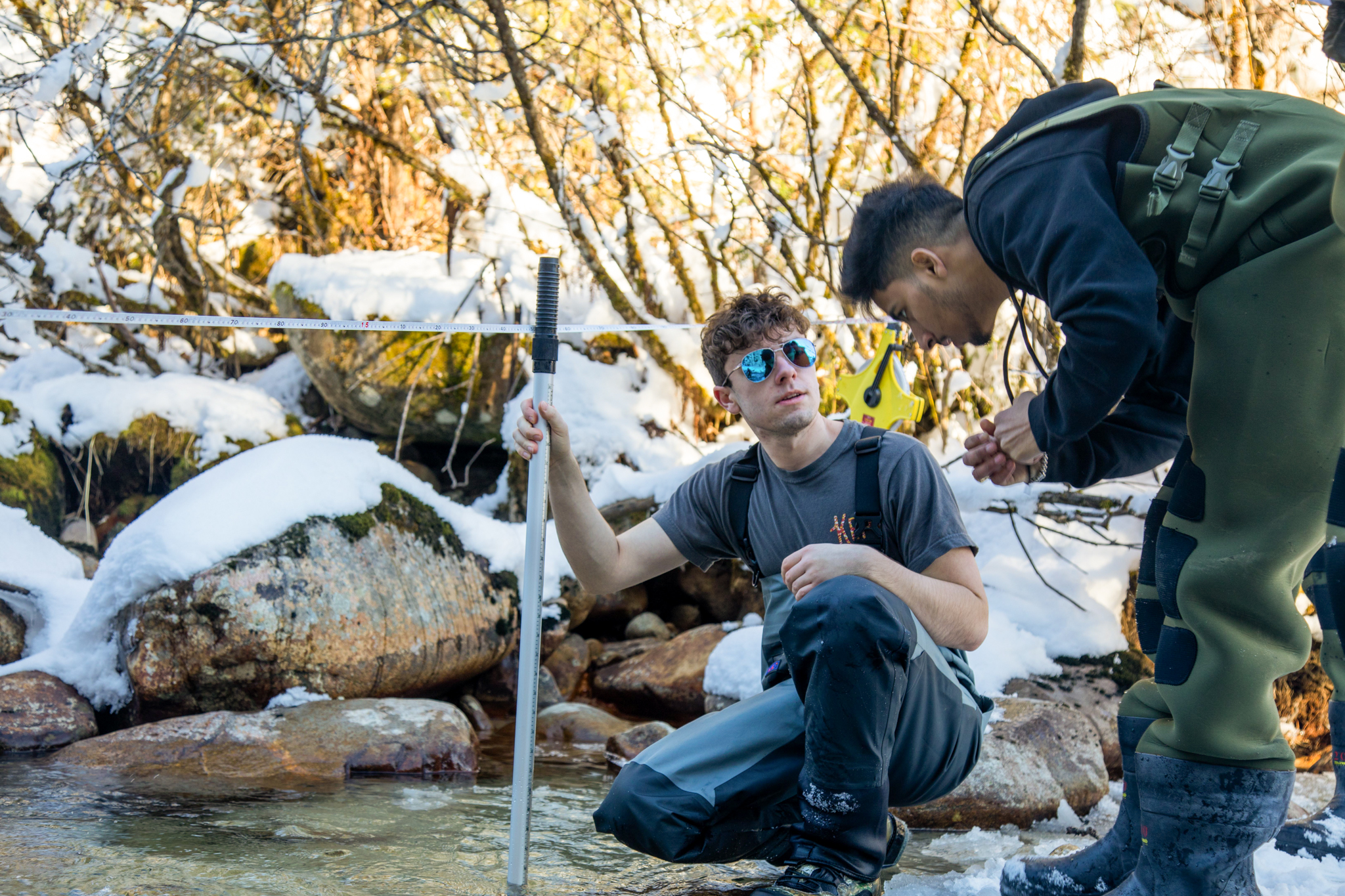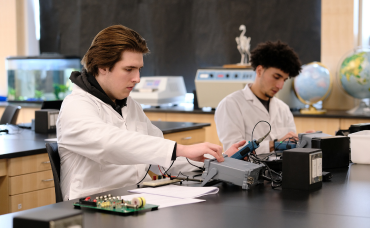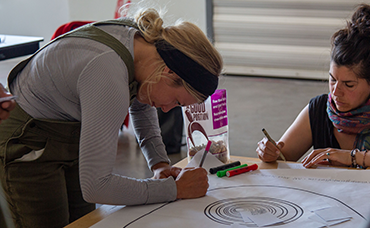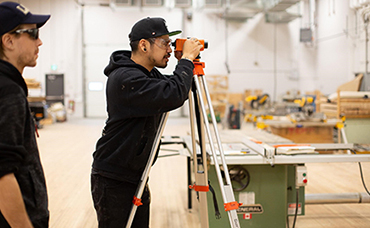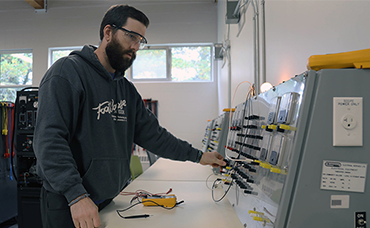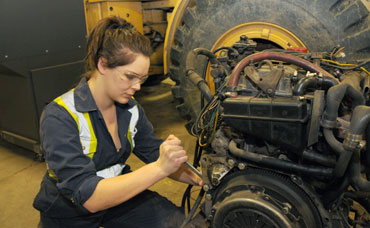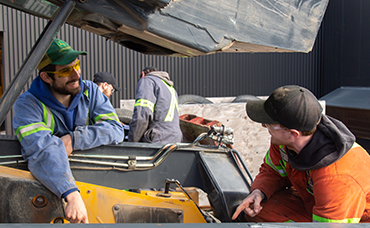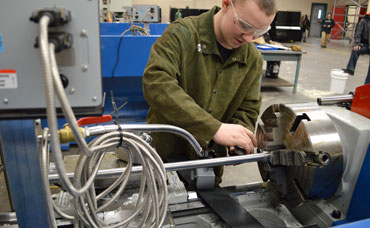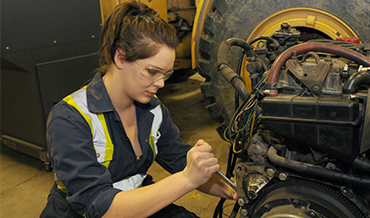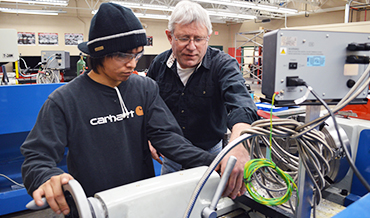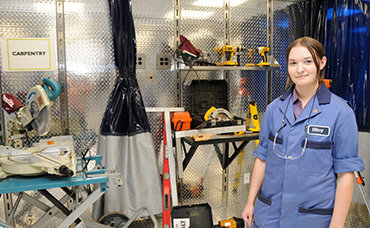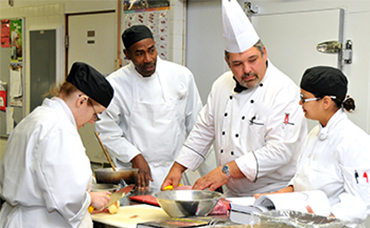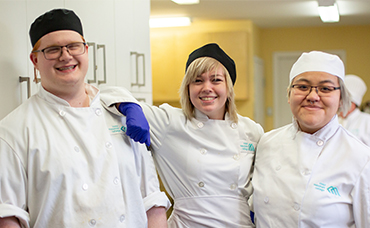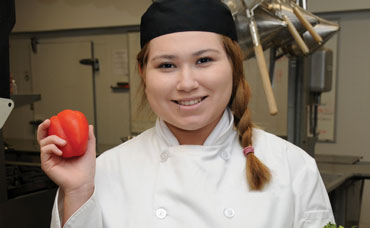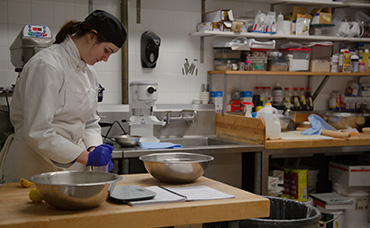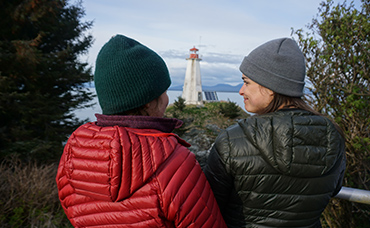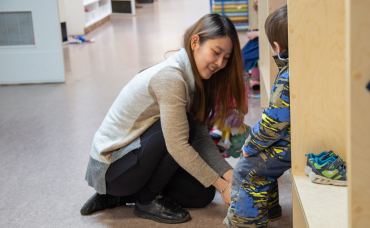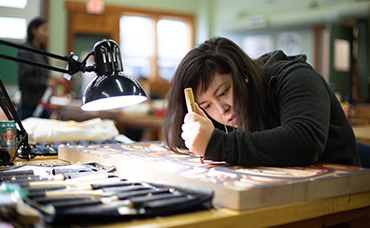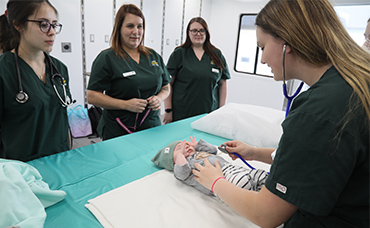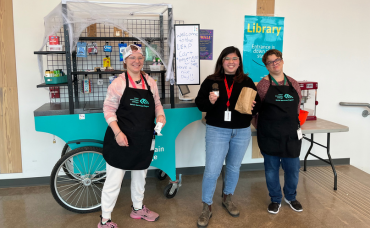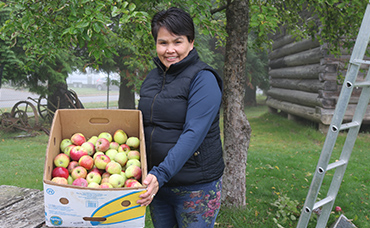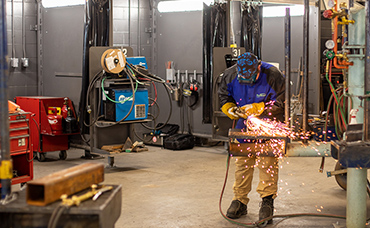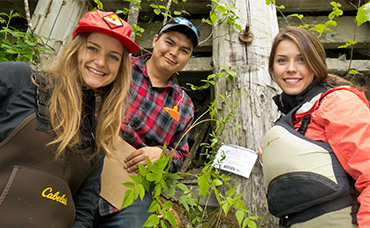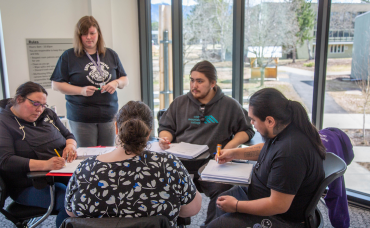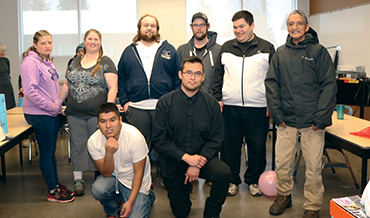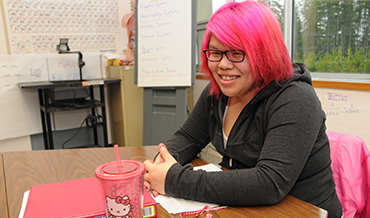-
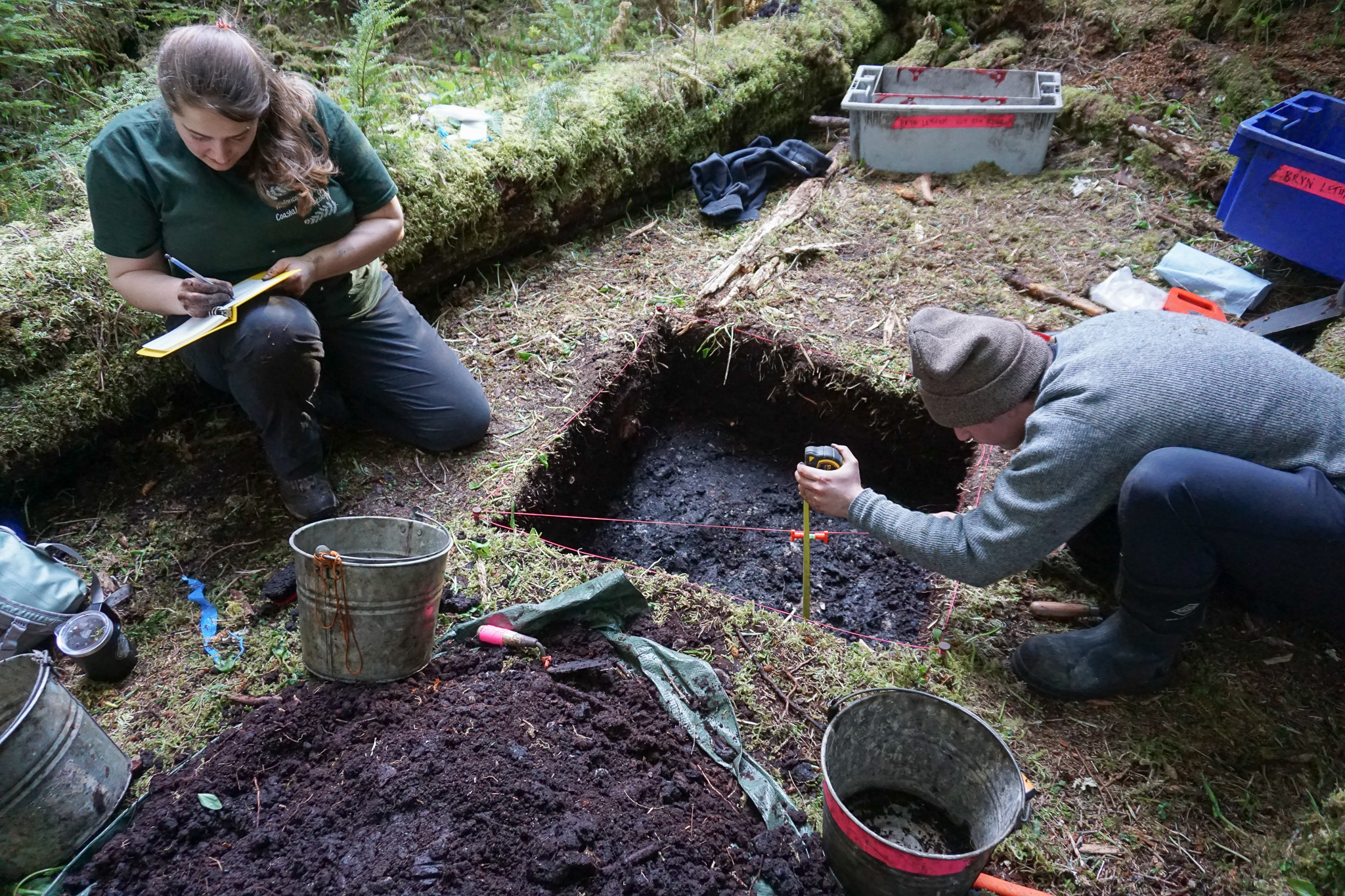 Program Length:Intakes:
Program Length:Intakes:This intensive is an introduction to the practice of cultural resource management in British Columbia. We will explore the nature of cultural resources in B.C., identify potential threats to these resources, and examine the legislation that protects heritage sites. We will also discuss the role of the B.C. Archaeology Branch in coordinating conservation efforts, delve into the ethics of archaeology, and highlight the steps being taken to increase First Nations' participation in the management and interpretation of heritage resources in B.C.
Courses | 3 Credits
- ANTH 212 - Cultural Resource Management
Instructor
- T. Freeland
-
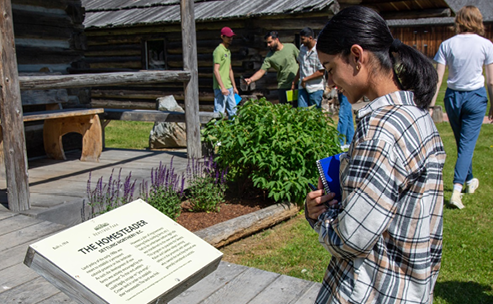 Associate of Arts DegreeProgram Length: 2 yearsIntakes: September & January
Associate of Arts DegreeProgram Length: 2 yearsIntakes: September & January -
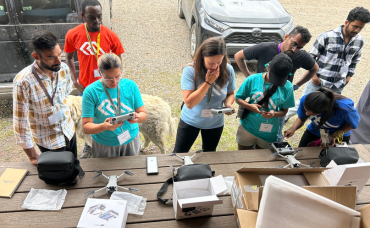 Associate of Arts DegreeProgram Length: 2 yearsIntakes: September & JanuaryBuild your pathway to a Social Services or Humanities degree. Earn credits in English, history, psychology, and more, while gaining a recognized credential that boosts your academic progress and career opportunities.
Associate of Arts DegreeProgram Length: 2 yearsIntakes: September & JanuaryBuild your pathway to a Social Services or Humanities degree. Earn credits in English, history, psychology, and more, while gaining a recognized credential that boosts your academic progress and career opportunities. -
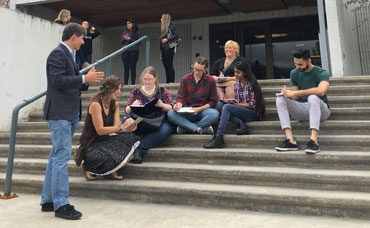 DiplomaProgram Length: 2 yearsIntakes: September & JanuaryImmerse yourself in the scientific study of crime, criminals and the criminal justice system.
DiplomaProgram Length: 2 yearsIntakes: September & JanuaryImmerse yourself in the scientific study of crime, criminals and the criminal justice system. -
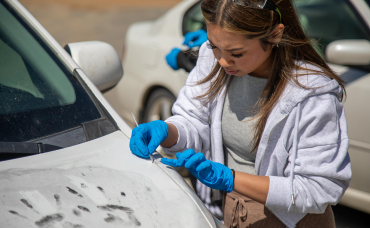 Associate of Arts DegreeProgram Length: 2 yearsIntakes: September & JanuaryExplore the criminal justice system and the causes of crime with practical, hands-on, and real-world learning that prepares you for a career in law enforcement, corrections, or community safety.
Associate of Arts DegreeProgram Length: 2 yearsIntakes: September & JanuaryExplore the criminal justice system and the causes of crime with practical, hands-on, and real-world learning that prepares you for a career in law enforcement, corrections, or community safety. -
 Program Length:Intakes:
Program Length:Intakes:Discover the rich cultural, spiritual, and historical tapestry of Japan in this immersive field school designed for students of psychology and cultural studies. From the heritage of Indigenous Ainu culture to the vibrant modernity of Tokyo, each destination offers a unique lens into human behaviour and mental processes across diverse contexts.
During this trip, you will:• Deepen your understanding of psychology through the lens of culture and spirituality.• Engage in hands-on learning with local experts and peers.• Transform your perspective by exploring Japan’s diverse traditions and histories.
Courses | 6 credits
- PSYC 245 - Psychology of Culture
- PSYC 260 - Psychology of Religion and Spirituality
Instructors
- Yuriko Riesen
- Ryan Elnar
-
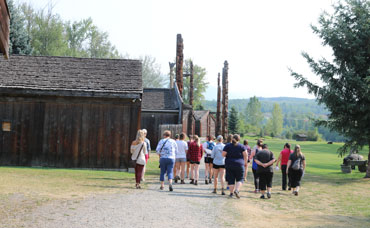 Associate of Arts DegreeProgram Length: 2 yearsIntakes: September & JanuaryGain insight into the diverse First Nations cultures and their histories, traditions, and relationships with the land, as seen through their own perspectives and teachings.
Associate of Arts DegreeProgram Length: 2 yearsIntakes: September & JanuaryGain insight into the diverse First Nations cultures and their histories, traditions, and relationships with the land, as seen through their own perspectives and teachings. -
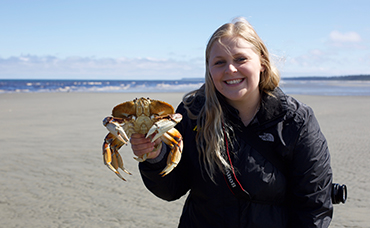 Program Length:Intakes:
Program Length:Intakes:The coastal rainforest island archipelago of Haida Gwaii is the ancestral home of the Haida people, and the inspiration of the rich and beautiful Haida culture.
Students will learn from Elders, and other knowledgeable Haida people, about the ancient history, culture, language, lifeways, connections to the land, and the impacts of colonialism. Students will meet Elders and leadership working with fluent speakers committed to restoring and revitalizing the Haida language, and efforts of reconciliation and relationships that build cultural understanding. This Field School is unique and a special opportunity for students.
Courses | 6 credits
Instructors
-
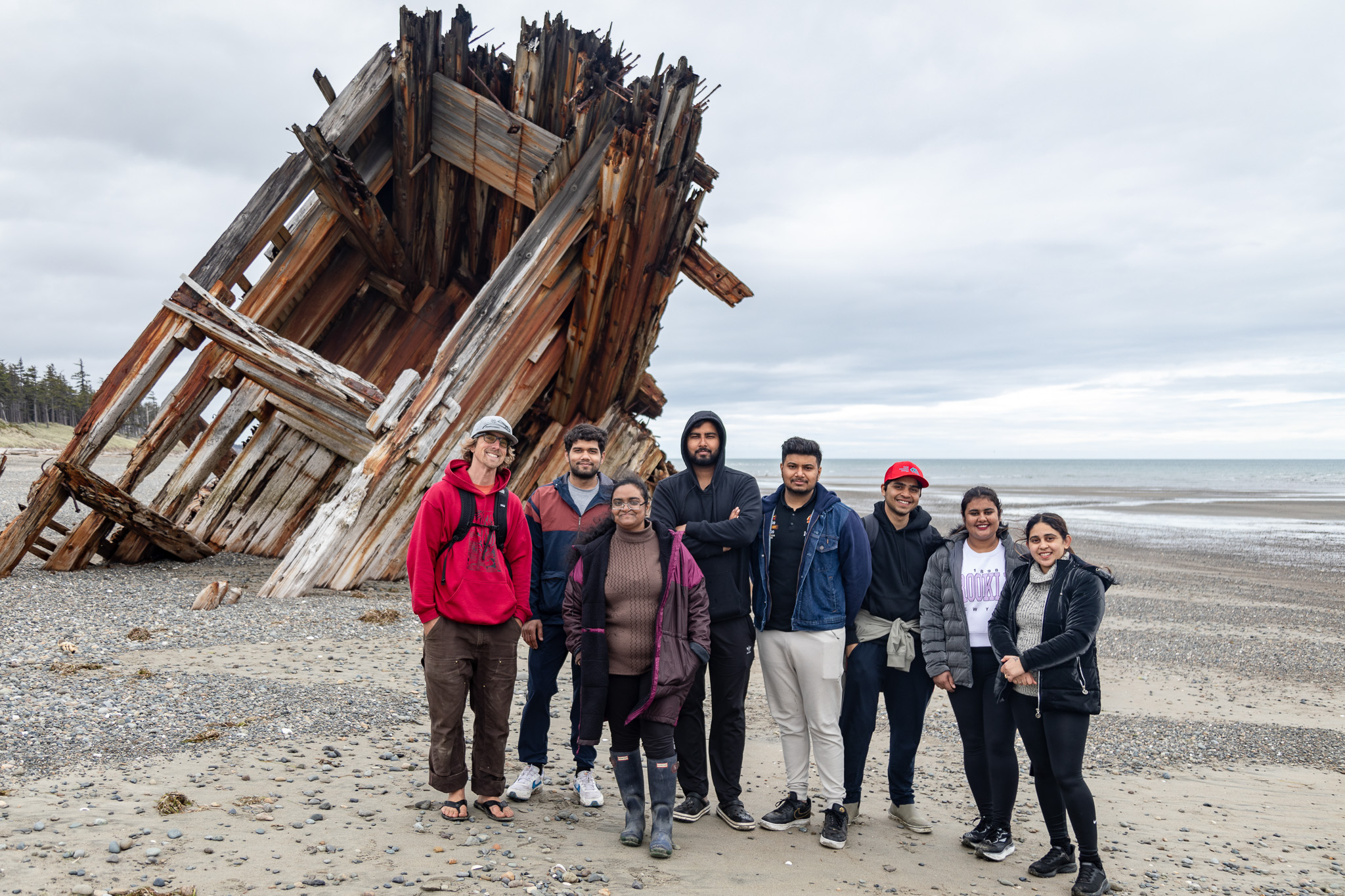 Program Length:Intakes:
Program Length:Intakes:The coastal rainforest island archipelago of Haida Gwaii is the ancestral home of the Haida people, and the inspiration of the rich and beautiful Haida culture.
Students will learn from Elders, and other knowledgeable Haida people, about the ancient history, culture, language, lifeways, connections to the land, and the impacts of colonialism. Students will meet Elders and leadership working with fluent speakers committed to restoring and revitalizing the Haida language, and efforts of reconciliation and relationships that build cultural understanding. This Field School is unique and a special opportunity for students.
Courses | 6 credits
- FNST 120 - Aboriginal Languages: Preservation and Revitalization
- ANTH 270 - Traditional Knowledge in Practice
Instructors
-
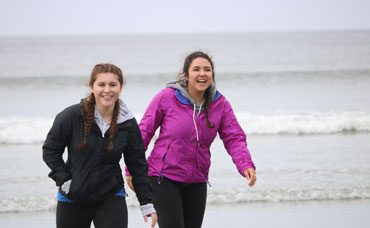 Program Length:Intakes:
Program Length:Intakes:Learn in spectacular Haida Gwaii!
Experience the culture and history of the amazing Haida people and explore the unique ecology of the archipelago.
Haida Gwaii, known to the Haida as "Islands of the People," is a diverse archipelago of over 150 islands located on the northwest coast of British Columbia, Canada. These islands are nestled below the Alaskan Panhandle and separated from the British Columbia mainland by the Hecate Strait. The Haida people have lived on Haida Gwaii for over 12,000 years. Recent findings have pushed that date back a further 1,000 years.
The Haida Gwaii Field School is an interdisciplinary biocultural studies program, offered with the support of the people and communities on Haida Gwaii. Biocultural studies at the College promote learning about the unique biological and cultural diversity and the interconnectedness of the two in northwest British Columbia. Biocultural studies also promote learning about the importance of sustaining that diversity given increasing assaults of environmental degradation. Biocultural studies support conservation, restoration and local control of resources including new out-of-the-box perspectives on how governments, industry, NGO's and local people can work together for an ecologically sustainable and just society.
Students and faculty, with the participation of Haida knowledge keepers, will learn of the Haida homeland and life ways and Haida peoples’ concepts about, and interactions with, the unique ecosystems of Haida Gwaii. Here you will study Haida oral histories from creation to recent and see how they compare to what western scientists are learning on the Islands. You will also earn of the impacts of contact and cash economy and disease. Following this experience you will gain a deeper understanding and appreciation of the complexities of Haida culture.
Courses | 6 credits:
-
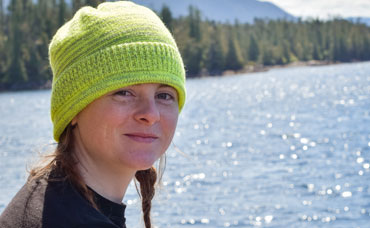 Program Length:Intakes:
Program Length:Intakes:The Humans and their Environment field school offers students a chance to see the intersections between people, place, politics and traditional knowledge. Students will look learn about social applications, resource management, ethics, and be introduced to local systems of knowledge and practice. Students will become familiar with alternative cultural ways of knowing and relating to the environment.
Courses | 6 credits:
Instructors:
-
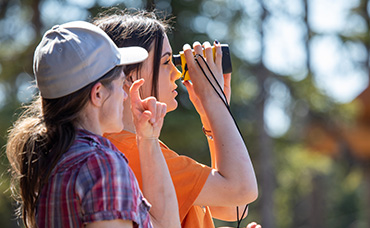 Program Length:Intakes:
Program Length:Intakes:The northwest coast and its ecosystems from ocean to alpine meadows is the backdrop for our inquiry into birds.
This field school will give an overview of evolution, diversity, life history and behavior of birds. The field trips and lab work will focus on identification of local species by sight and sound. Birds are unique; they offer the opportunity and challenge of observing with all our senses.
Courses | 3 credits
BIOL 236 - Ornithology: Biology of Birds
Instructor:
- Reto Riesen
- Sandeep Beepat
-
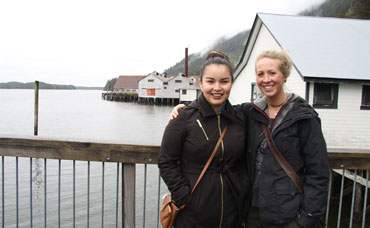 Program Length:Intakes:
Program Length:Intakes:This course explores the history and culture of Indigenous Peoples of northwestern BC, with a focus on how deep-time connections to place and landscape inform cultural knowledge, practices, and traditions.
Through classroom and field-based experience, we will explore how Indigenous peoples have managed, modified, and stewarded their lands for millennia, and how long-term practical experience with the landscape structures notions of territory, belonging, and Indigenous Rights and Title. We will study culturally significant places and landscapes through ways of knowing such as Indigenous oral histories, traditional ecological knowledge, anthropological ethnography, and archaeology, in order to understand connections between key concepts of place, culture, and history.
Field trips may include historic sites, museums, Indigenous communities and other places of significance on the landscape. The field portion may involve overnight stays in remote areas and/or camping.
Courses | 6 credits
Professor:
-
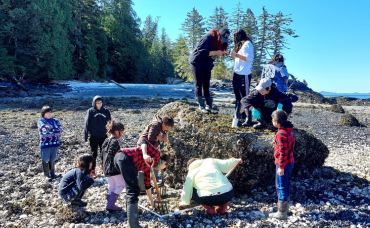 Program Length:Intakes:
Program Length:Intakes:Come explore the history, archaeology, and culture of Indigenous Peoples living on the shores of the Pacific Ocean in northwestern BC. We will visit landscapes and ancient villages that First Nations peoples have been occupying and using for thousands of years.
Through classroom and field-based experience, we will explore how Indigenous peoples have managed, modified, and stewarded their lands for millennia, and how long-term practical experience with the landscape relates to notions of territory, belonging, and Indigenous Rights and Title. We will study culturally significant places and landscapes through Indigenous oral histories, traditional ecological knowledge, anthropological ethnography, and archaeology, in order to understand connections between key concepts of place, culture, and history.
This course will be taught through one week of in-person class time in Prince Rupert for the first few days, then we will take a field trip to an ancient village site and significant clam harvesting location for the Gitga’at Nation, on an island south of Hartley Bay and the mouth of Douglas Channel. We will camp at the site and participate in field activities with Gitga’at community members and other researchers to learn about the immense cultural significance of this location for Gitga’at people.
For a photo essay of last year's field school, see: brynletham.com
Courses | 6 credits
Professor:
-
 Program Length:Intakes:
Program Length:Intakes:Through classroom and field based experience, explore the cultural and environmental diversity of British Columbia, from past to present. Field trips will include historic sites, museums, Indigenous communities and other places of significance on the landscape.
This field school will integrate History 213: The History of BC and Geography 225: Regional Geography of BC.
Courses | 6 credits
-
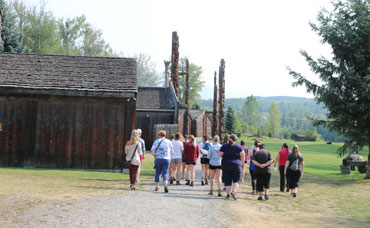 Program Length:Intakes:
Program Length:Intakes:Immerse yourself in the rich and amazing Gitxsan culture and history, while learning about the traditional usages of plants, including the tree of life, cedar weaving, and other traditional activities, such as the preparation of smoked salmon.
The People of the Skeena Field School will take place in the Terrace area where you will visit the Gitxsan Eagle Clan’s fishing site of Guxts’eliksit. At this Language Preservation and Culture Camp, students will be hosted by Skaỳan (Anita Davis), Hereditary Chief/Matriarch, and other Eagle Chiefs/Elders.
Course | 6 credits
Instructor
-
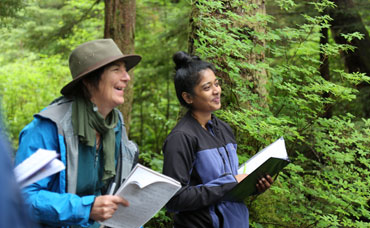 Program Length:Intakes:
Program Length:Intakes:Learn how to create sustainable communities through the process of permaculture design. During this two-week intensive study you will complete a variety of outdoor activities, lectures, visits to field sites, and explore how the creative design process of permaculture can provide an organizing framework.
Permaculture is the conscious design of landscapes which mimic the diversity, stability, and resilience of natural ecosystems and the relationships found in nature while yielding an abundance of food, fiber and energy for the provision of local needs.
This field school will be taught by Ken Shaw who has trained with many leading permaculture teachers including, Geoff Lawton, Toby Hemenway, Dave Jacke, Owen Hablutzel, and Jesse Lemieux as well many years of farming in rural and urban settings.
Course | 3 credits
- SUST 120 - Introduction to Permaculture
Instructor
-
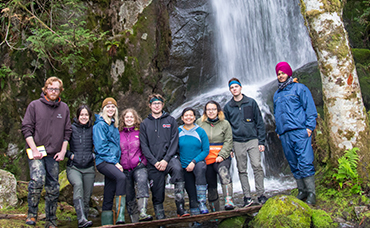 Program Length:Intakes:
Program Length:Intakes:Explore the dynamic forest ecosystems of northwest BC, from the lush, dense coastal forests, to the drier, cooler ecosystems of the interior plateau.
Along the way you will develop your skills in plant biology and investigate a diversity of ecosystems including temperate rainforest, boreal forest, alpine, wetlands, estuaries, and coastal habitats. As a project-based field school, you will work as a team to describe and compare the ecology of each major ecosystem visited.
Bella Coola Petroglyphs
Ancient Forest
Courses | 6 credits
Instructors
-
 Program Length:Intakes:
Program Length:Intakes:Would you like to learn how groups of people think and behave in various circumstances? Are you interested in why and how people discriminate against each other, and even start a war? Do you want to understand why some people can be altruistic toward strangers in most horrific situations?
If you are interested in such topics from psychological perspectives, then this summer intensive course is for you!
Courses | 3 Credits
- PSYC 208 - Social Psychology
Instructor
- TBA
-
 Program Length:Intakes:
Program Length:Intakes:Learn about the early relationships between First Nations people and European newcomers and explore language restoration and revitalization.
In this field school you will examine how reconciliation is formed through relationship building and understanding. With visits to five First Nations communities, you will engage with Elders and leadership in each community, working closely with fluent speakers and leaders committed to restoring and revitalizing languages. Our field school includes visits to cultural centres as well as other sites that are key to the broader history of British Columbia and Canada.
Courses | 6 credits
-
 Program Length:Intakes:
Program Length:Intakes:Experience the spectacular geography of the northwest coast while you participate in traditional seafood harvesting and processing.
This field school includes a five-day trip where you will travel by boat up the Douglas Channel to the remote location of Hartley Bay. Experience the life of the seaweed camp and the culture of the Gitga’at First Nation who continue to gather and harvest 90% of their food from the land and marine environment.
Explore topics concerning women, gender and differences as you immerse yourself in the culture of the Gitga’at whose surroundings are deeply tied to their customs, daily life and cultural identity. You will also use the concepts and methods of regional geography to examine Hartley Bay and surrounding area in the terms of the patterns of its physical and human landscapes.
Courses | 6 credits:
-
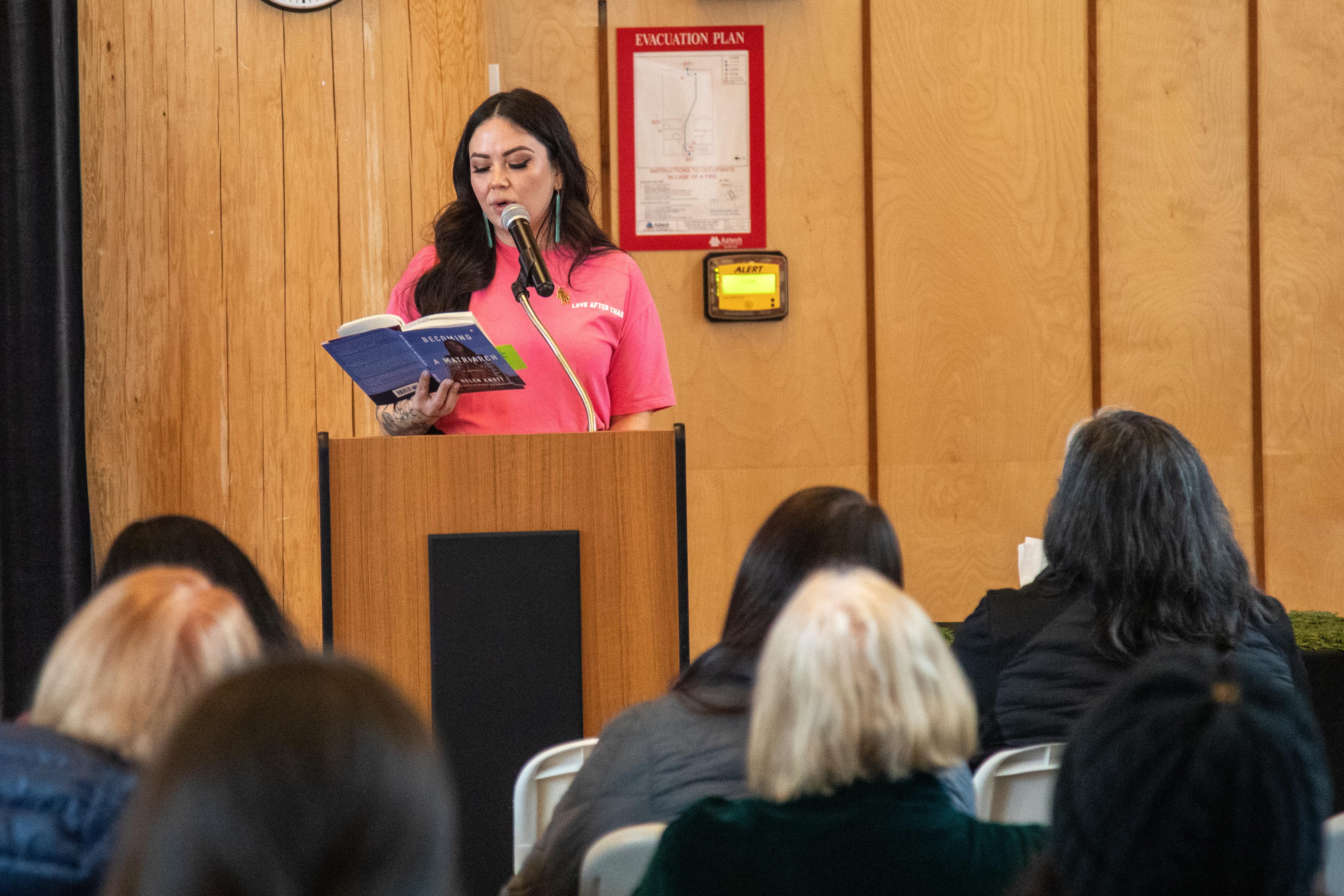 Program Length:Intakes:
Program Length:Intakes:Do you have big ideas? Curious how to get an idea materialized or business going? This field school will leverage experiential and place-based learning to engage learners in a transformative creative community-based learning experience. This unique learning experience will connect learning alongside local businesses, organizations, entrepreneurs, and residents to co-create a live community project through a design-based process, using a variety of tools and strategies to ensure a viable start-up. Come and learn principles of effective entrepreneurship, practical skills, and continue on your journey with the transformations earned from investing in a project that can make a difference.
Additional fees for this field school include all travel/transportation and overnight accommodations when required.
For more information or to request Permission of Instructors to register, please contact David Geronazzo to arrange an interview. Limited seats are available.
-
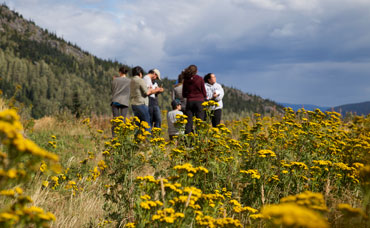 Program Length:Intakes:
Program Length:Intakes:Experience local Indigenous culture while developing an appreciation for a wide variety of geomorphological processes and landscapes.
The Stewart/Telegraph Creek field school begins in Terrace where you will gain a foundation in geoscience and anthropology. We will then travel towards Stewart to investigate the geology and observe some of the most spectacular glacial and alpine landscapes on Earth. Our journey will continue to the volcanic area of Mt. Edziza, and the lava deposits along the valley of the Stikine River to Telegraph Creek. While at Telegraph Creek, you will be guided by the Tahltan people on their amazing and breathtaking territory, to learn about the Tahltan culture, history, and salmon fishing villages.
As part of your field studies you will be encouraged to draw upon the information and experiences acquired in both the geomorphology and anthropology courses to develop and articulate more informed opinions on culture, resource exploration and environmental stewardship.
Courses | 6 credits:
-
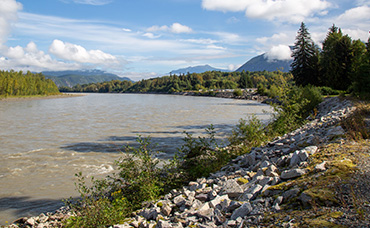 Program Length:Intakes:
Program Length:Intakes:Through classroom and field based experience, explore the cultural diversity of British Columbia from past to present. Field trips will include historic sites, museums, Indigenous communities, and other places of significance on the landscape. Learn about how heritage sites are managed and how stories about these places are told.
Courses | 6 credits
Instructors
-
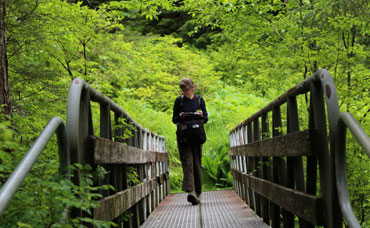 Associate of Arts DegreeProgram Length: 2 yearsIntakes: September & JanuaryBuild leadership skills with a focus on community and economic development. Explore Indigenous perspectives, governance, resource impacts, and models of economic development while gaining practical tools to lead and support strong, resilient communities.
Associate of Arts DegreeProgram Length: 2 yearsIntakes: September & JanuaryBuild leadership skills with a focus on community and economic development. Explore Indigenous perspectives, governance, resource impacts, and models of economic development while gaining practical tools to lead and support strong, resilient communities. -
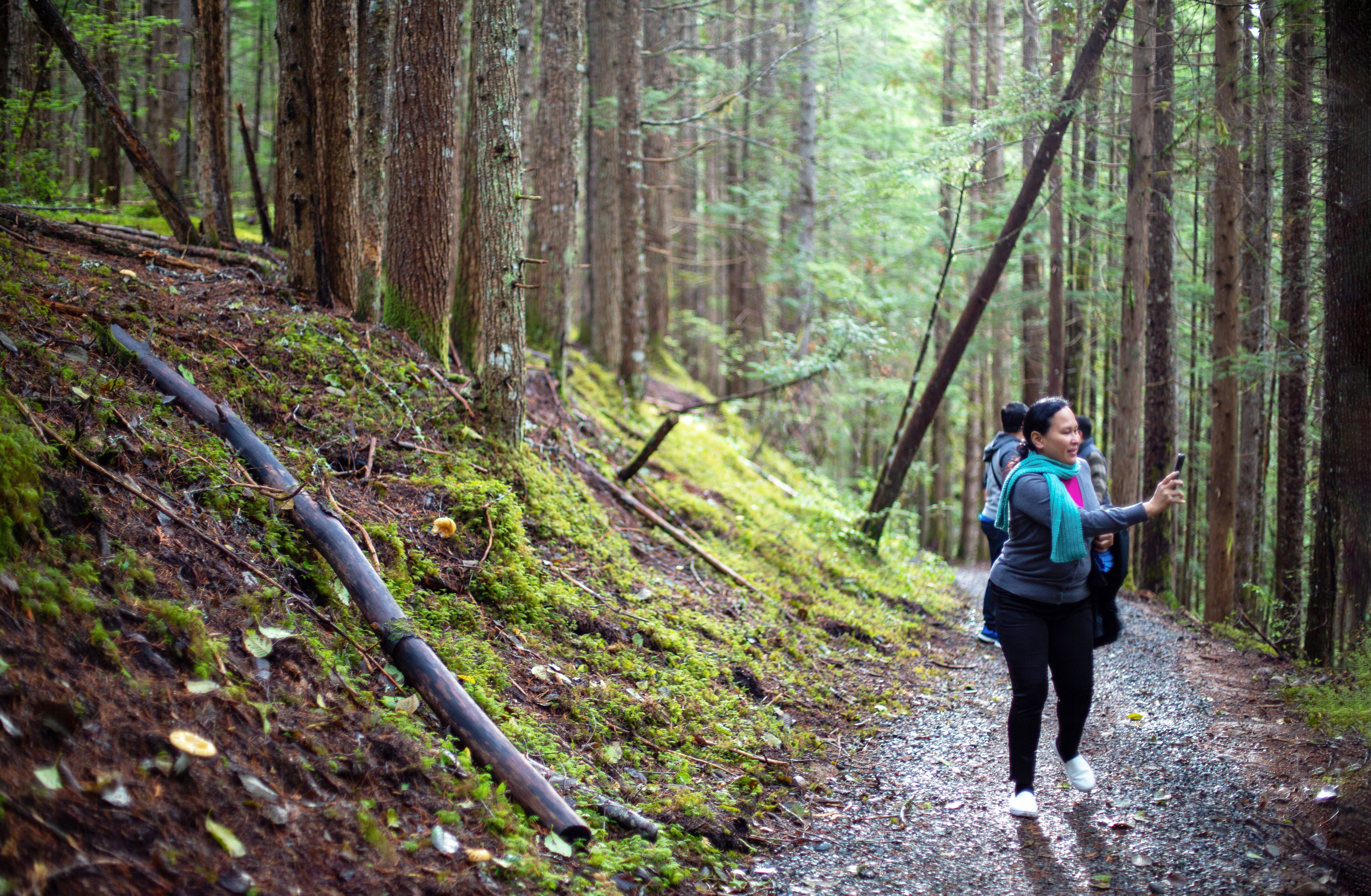 Program Length:Intakes:
Program Length:Intakes:Immerse yourself in the rich tapestry of local traditional plant knowledge and Indigenous ways of knowing. You’ll explore how plants serve as powerful medicines, healing communities for generations. Through hands-on learning and exploration of the local land and waterways, you'll learn how these remain essential to our well-being and cultural heritage, helping preserve this knowledge for future generations.
Includes excursions, lectures and labs, which are scheduled weather dependent. Overnight trip.
Courses | 3 credits
-
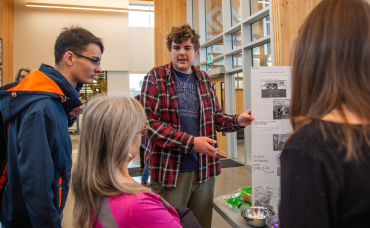 Associate of Arts DegreeProgram Length: 2 yearsIntakes: September & JanuaryTake first- and second-year university courses in Arts then transfer to universities across BC and beyond to earn your bachelor’s degree, or kickstart your exciting career pathway upon completion.
Associate of Arts DegreeProgram Length: 2 yearsIntakes: September & JanuaryTake first- and second-year university courses in Arts then transfer to universities across BC and beyond to earn your bachelor’s degree, or kickstart your exciting career pathway upon completion.
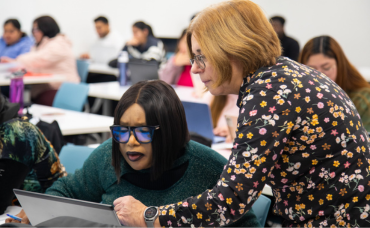
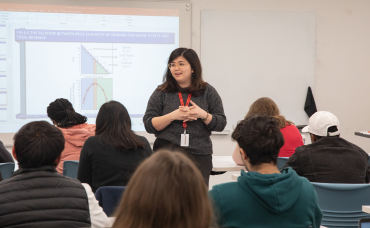

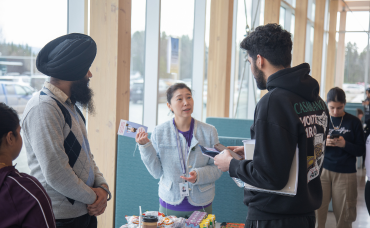
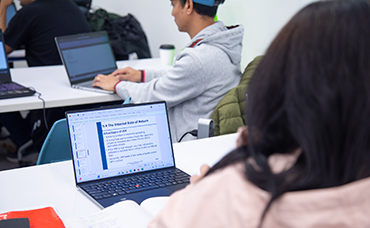
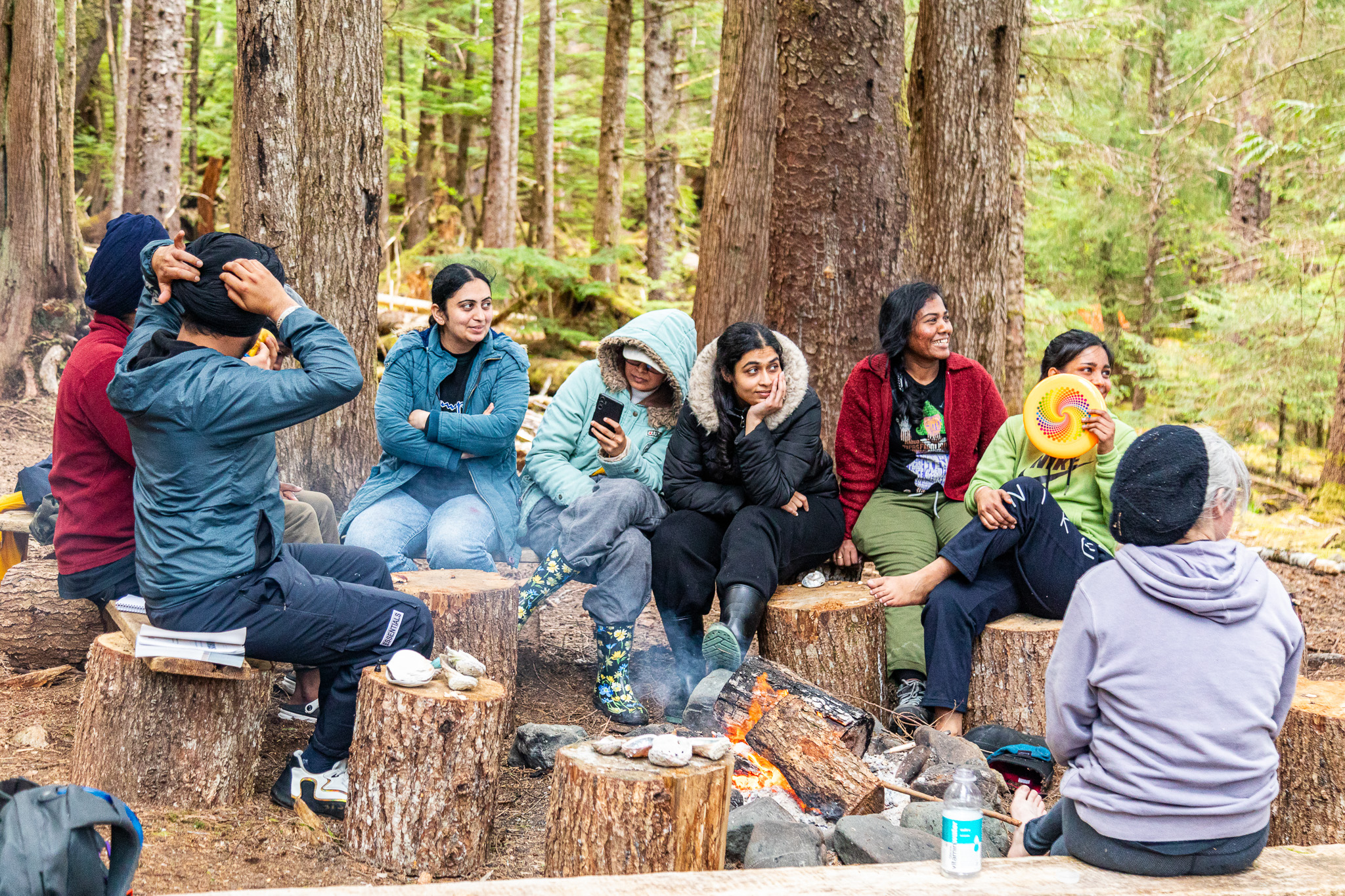

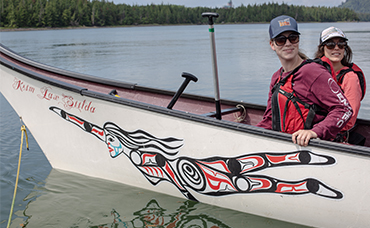

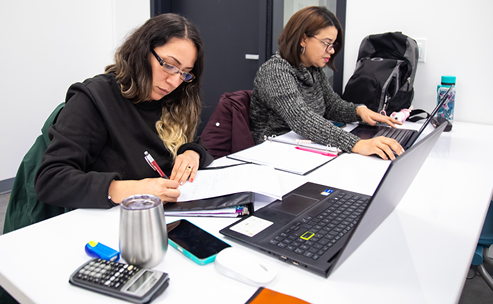
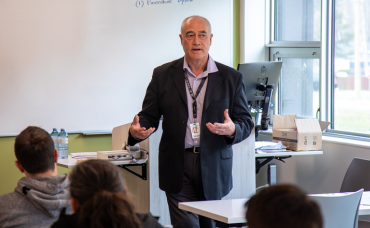
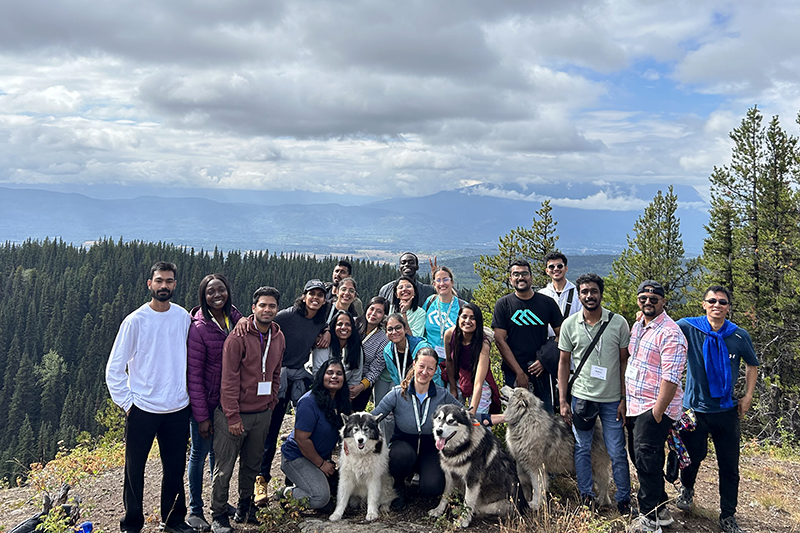
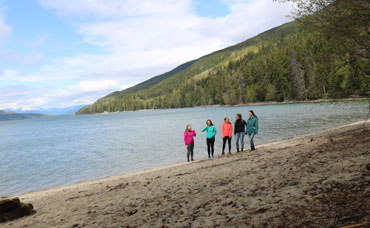
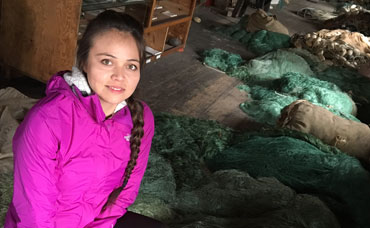
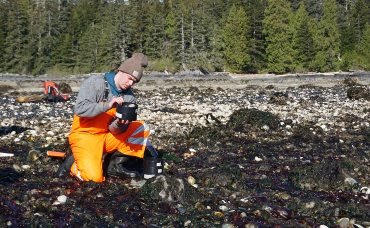
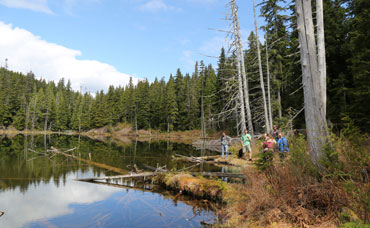
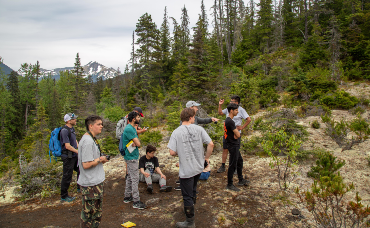
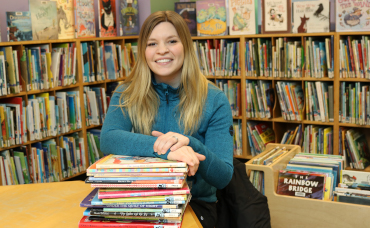
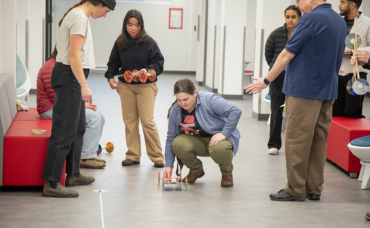
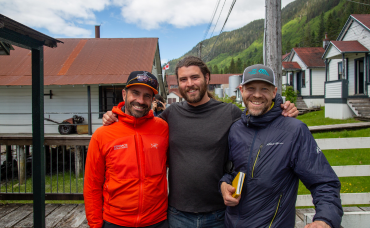
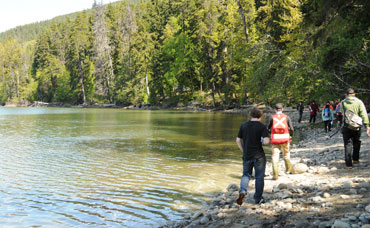
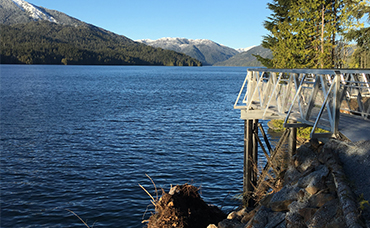
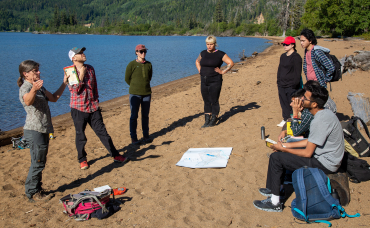
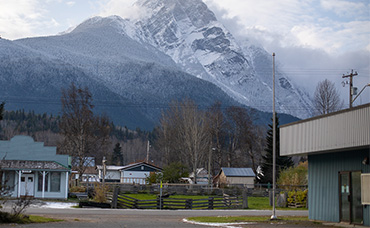

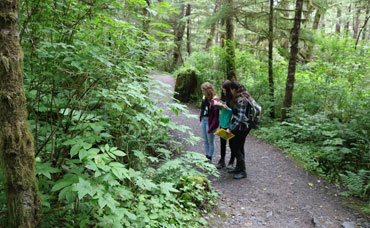
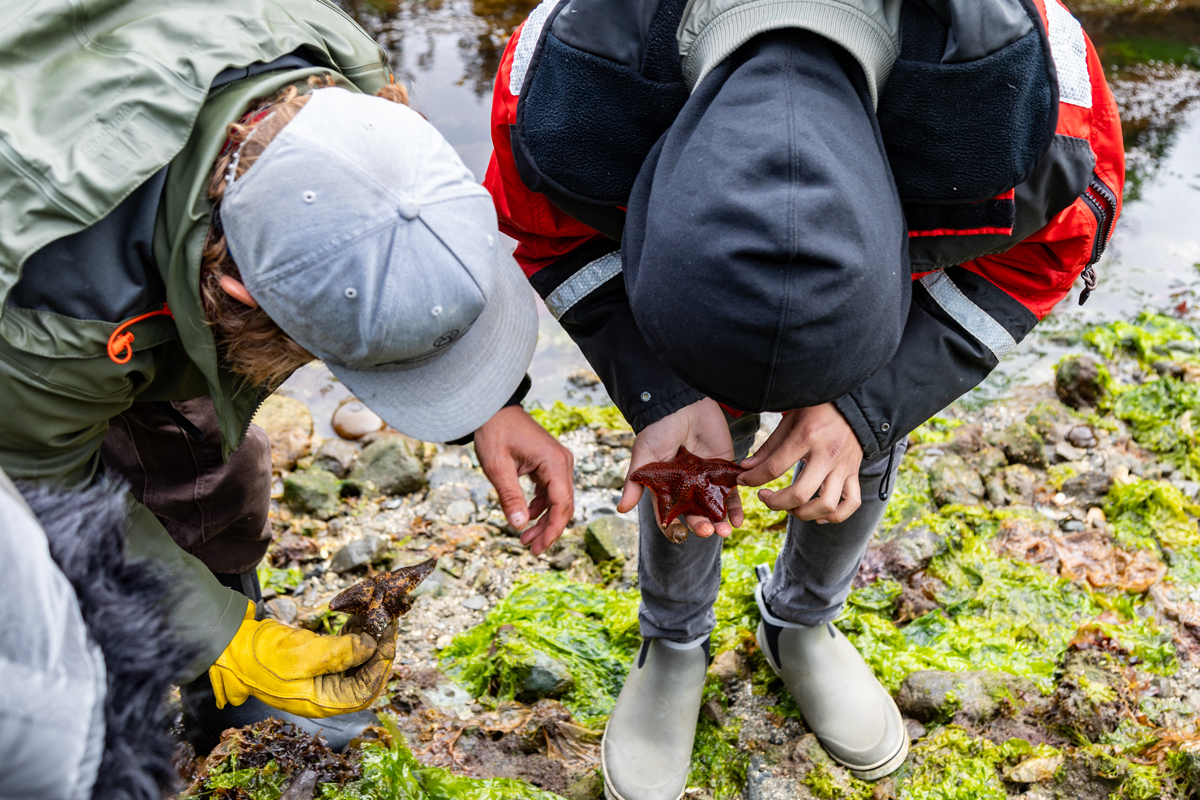
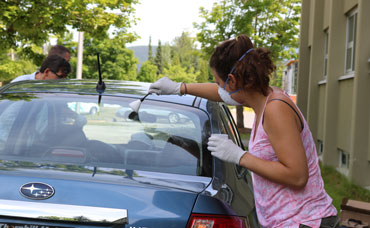

.jpg)
